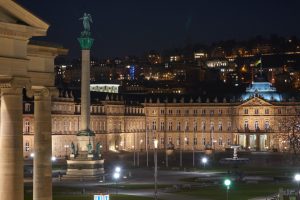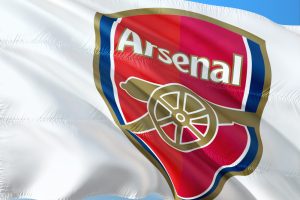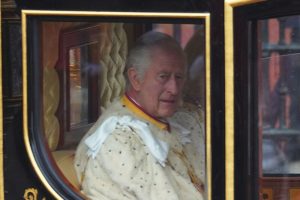
Photo by Isaac Mayne / DCMS
Waqar Ahmad Ahmedi, UK
The word ‘tradition’ has long been synonymous with the British monarchy. But at King Charles III’s formal crowning at Saturday’s Coronation – over 70 years after his mother Elizabeth II became Queen – there were some notable firsts.
Among these was the prominent role played by representatives of the major world religions in the ceremony. Even for an occasion deeply Anglican in nature, conducted by Justin Welby, the Archbishop of Canterbury and senior bishop of the Church of England, the service witnessed prayers from leaders of the Roman Catholic, Greek Orthodox and other Christian denominations. UK Prime Minister Rishi Sunak, a practicing Hindu, read a passage from the Bible. Senior figures from Jewish, Hindu, Buddhist, Muslim and Sikh traditions were involved in the procession through Westminster Abbey and presentation of regalia to the King. They also collectively greeted Charles III with the words:
“Neighbours in faith, we acknowledge the value of public service. We unite with people of all faiths and beliefs in thanksgiving, and in service with you for the common good.”
Never in the time of 61 monarchs before has this happened, but seems fitting that it has taken place in the reign of King Charles III, who has long been a champion of religious unity and interfaith peace. He has stated previously that as well as being the Defender of the Faith, the monarch should also be seen as the protector of all faiths.
One of his first public audiences after his accession to the throne was with 30 faith leaders, sharing with them his pride in Britain being a “community of communities” and his own vow “to hold myself bound to respect those who follow other spiritual paths”.
From showing reverence in the presence of the Guru Granth Sahib at a Luton Gurdwara, to expressing the West’s debt to Islamic civilisation, the King, who took an oath to remain a “faithful Protestant”, has exemplified regard for the sacred in religions other than his own.
The 2021 Census data highlighted the central place faith continues to play in the lives of British people, with more than half the population of England and Wales identifying as religious, namely Christian (46.2%), Muslim (6.5%), Hindu (1.7%), Sikh (0.9%), Buddhist (0.5%), Jewish (0.5%) or another religion (0.6%). And as the world’s religious population is predicted to rise to 87% by 2060, religion will always have global relevance.
As part of his own Coronation prayer, the King asked of God:
“Grant that I may be a blessing to all thy children, of every faith and conviction.”
It is part of his continued commitment to embrace all religious traditions and “the pattern of the divine, who is, I think, in all of us. I have always felt the Catholic subjects of the sovereign, are equally as important as the Anglican ones, the Protestant ones. Likewise, I think the Islamic subjects, the Hindu subjects, the Zoroastrian subjects of the sovereign, are of equal and vital importance.”
In a message to the International Ministerial Conference on Freedom of Religion or Belief last year, the head of the Ahmadiyya Muslim Community, His Holiness Mirza Masroor Ahmad, prayed:
“May Allah the Almighty enable for true religious freedom and harmony to prevail and for all communities and peoples across the world to live their lives freely according to their beliefs.”
The Coronation of King Charles III signifies one fulfilment of that prayer. It is of little surprise that places of worship across Britain have been hosting celebration events to welcome their new monarch as a protector of the many faiths that enrich society, and as a beacon of freedom of belief for all.
About the Author: Waqar Ahmad Ahmedi is Head of Religious Studies at a school in Birmingham, UK. He is also a subject consultant, author and tutor. He also serves on the Editorial Board of The Review of Religions.




Add Comment